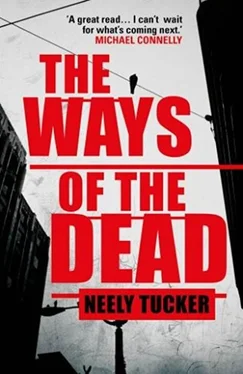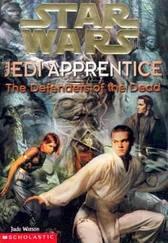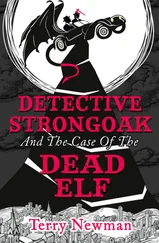The bike took him up Massachusetts Avenue to North Capitol, then left on the four-lane expanse of Irving Street NW, and he was back in the Park View neighborhood. The row houses sprang up on each side of the road, their porches coming to within a few feet of the sidewalks, their rusting iron gates and railings hard on the edge of the concrete.
He parked the bike on the top half of Princeton Place, looking at the row of weathered houses, picking one in the middle of the block. When he got to the front door, he pressed the doorbell, looking down, hands clasped in front of him, notebook tucked under an arm, trying to look as non-threatening as possible. An elderly, diminutive black woman opened the door a crack. She was wearing a pink house robe and did not take the business card he held out.
“Hi, ma’am, I’m sorry to disturb you this early, but my name is Sully Carter and I’m a reporter for the paper? I’m working on a story about this incident down to Doyle’s last night? I was-”
The woman blinked, her brown eyes steady, and gently closed the door in his face.
You never stopped moving. That was the thing. You just kept pushing, driving, asking, sticking your nose in people’s faces, taking the shit, the insults, fighting back the depression and the sense of hopelessness and then, out of the void, sometimes somebody told you something.
The basketball court at the rec center, where the three suspects had been playing the night before, was roped off with police tape, the afternoon game moving to an adjacent alley, the netless hoop nailed to a telephone pole. He was three steps in the alley and the players were taunting him.
“Hey, paleface, the fuck you doin’?”
“’less you got a warrant, keep walking, bitch.”
“Whyn’t you walk right?”
He went a block up. There were two houses, crack squats, a small cluster of zombies out front, guys with hands in their pockets, eyeing him, seeing if he was trolling for a dime bag, a nickel rock… A woman sitting on the front step of an abandoned house-flabby, ashy knees, bloodshot eyes-offered to blow him for twenty bucks. When he turned to say something to that, she said, “Ah, you know the price, yeah? Gimme ten.”
Roll-down steel gates shuttered the entrance to the Big Apple. The gates were at half-staff at Doyle’s, lab techs ducking their way in and out. He remembered that Doyle lived somewhere near the store but he didn’t have an address. Directory assistance said there was no such person listed. He should have thought to have news research run property records last night.
The strip joint up the block was the Show Bar. It hadn’t changed since he’d stopped in while working on the Lana Escobar story. Six customers, one woman on the pole, a bartender with a light thumb, a queasy reddish light to the interior. Les Samuels, the manager in the jumbled office in the back, not telling him anything he didn’t already know.
By three in the afternoon, Sully had knocked on fifteen doors, talked to half a dozen store owners, heard nothing about the three suspects, and was getting the distinct idea that nobody in or around Princeton Place gave a good goddamn about Sarah Emily Reese.
A beer delivery man got out of a truck in front of the Hunger Stopper, the vehicle burping exhaust from the tailpipe. Sully, half jogging up the street now, deadline looming, flagged him down with an “Excuse me.” Getting a dolly out of the back, the man eyed Sully, the grayness of the day reflected in his expression.
“Not to be any sort of way about it,” he said when Sully said what he was doing and why, “but you a little late to the party, aren’t you, brother?” He broke eye contact to look at the scars, then back at Sully directly. “Park View’s been beat to shit for years. That Hispanic girl, she got killed last year. Noel went missing? I didn’t read nothing ’bout that in the news paper.”
He kept going, white girl gets it, lookit the TV cameras, white girl gets it, lookit the papers… But the name blossomed over Sully-Noel. Noel Pittman. That was the incident he’d been trying to remember the night before. Howard student, party girl. Disappeared after leaving a club last year. She’d been living on Princeton Place.
Sully leaned back on his good leg, letting the man talk but working his way into the monologue. “Lana, Lana, I remember Lana,” he finally elbowed in. “I wrote a little something on her. But you’re right, it wasn’t much. Back of Metro.” A shrug. “Her dad was a federal judge, I imagine we would have done more.”
“Daddy was a federal judge,” the man said, “it would have gotten solved.”
Sully smiled. “Sounds like you knew the other one? Noel?”
“Don’t I wish. To say hello. You’d see her at the clubs. She was one of the dancers out at Halo, on the elevated platforms? Then one day I’m making the rounds and see her face on a ‘Missing’ poster.”
“And that was it? She was just gone? No loco boyfriend?”
The man leaned on the dolly, reaching a hand out, shaking it, as if flicking water from his fingertips. “You heard neighborhood talk, flapping gums.” He stepped inside the truck and opened the glove compartment. He sifted through a stack of papers, then unfolded a sheet, eleven by fourteen, that had holes in the top and bottom where it had once been stapled to a telephone pole.
The picture showed a young woman smiling at the camera, brown eyes, brown skin, radiant complexion. Bold-faced lettering spelled out her name at the top, above the picture. Below, it read, “Last seen-April 24, 1998.” There was a phone number underneath.
“Mind if I hang on to this?” Sully asked. “I’m sorry, I didn’t ask your name.” He leaned forward to shake his hand. White guys in this town, you didn’t really do this with, lean forward, shake, make the eye contact. Black men, you damn well better.
“Rodney,” the man said, taking his hand in a solid grip. “Rodney Wilson. Grew up over on Warder. Keep the poster, put her name out there, hunh?” The man looked at him, taunting: “Do a little something for the block, other than just feed off it?”
Sully nodded, letting it slide. A couple of television crews were doing stand-ups in front of Doyle’s Market. The rain had started misting again. He pulled out his cell and called the number at the bottom of the Pittman flyer. A recorded woman’s voice said to leave a message if the caller had information about Noel, no questions asked. There was a beep and Sully explained himself and asked for a call back.
The watch on his wrist read 4:17.
***
The sixth floor of the newsroom was vast and unpopulated, nobody around on a Saturday afternoon except the sports staff, televisions hanging from the ceiling, ablaze with college games.
He walked through the low cubicles spread across the expanse of the room, checking to see if the top staff were in their glass offices on the south wall. Edward Winters was in his executive editor’s office-always always-but Sully didn’t see anyone else. In the main newsroom, a handful of weekend editors were seeing the Sunday edition into print. Over on National, there were a hardful of reporters. It was quiet and most of the overhead fluorescents were dark.
His desk was tucked into the far left corner, around a small nook, in the no-man’s-land between Investigative and Metro. Chris had draped his jacket over the chair and set his helmet on the desk. There was a spent brass mortar shell, carved in intricate patterns, that he had bought from refugees in Bosnia. There were a dozen or so prayer beads he’d collected, more as tourist keepsakes than religious talismans, draped over it, along with purple and yellow and green Mardi Gras beads.
Читать дальше












